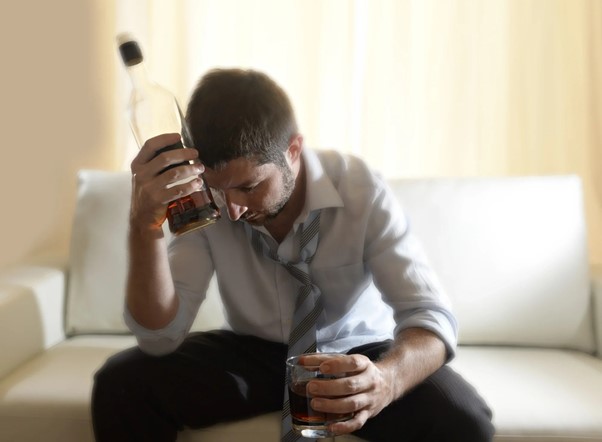If you’re struggling with alcohol addiction, you’re far from the only one. Research suggests that millions of U.S. adults report binge drinking or heavy alcohol use in the last month alone. Unfortunately, research also shows that people who drink alcohol at twice the binge-drinking threshold are 70 times more likely to have an alcohol-related trip to the emergency room.
However common excessive alcohol use may be, it’s also hard to stop. Because you’re dealing with cravings in addition to a challenging detox process, making preparations to get sober at home can be difficult.
The best way to detox from alcohol is to take things slow, tap into your support system, and work with a medical professional. If you’re ready to get on the road to a safe and successful recovery, here are the steps you need to know.
Keep a Drinking Diary
Don’t start your alcohol detox blindly. Before you begin reducing your alcohol intake, start making notes about how much you’re drinking every day. Don’t attempt to change your drinking habits yet; this stage allows you to get a sense of your current state.
Write down when you drink, what kind of alcohol you’re consuming, and how many drinks you have.
It may also help to figure out how many “standard drinks” you are consuming. To do this, you may need to look at the beverage label and measure the volume of your drink. For example, a 12 oz. can of beer and a 1.5 oz shot of gin both count as one “standard drink.”
Note that this step isn’t necessary if it feels like an obstacle to keeping your drink journal. The most important thing is to maintain any basic record, with or without details.
Keeping a journal can help with awareness, which in turn can help you stabilize the amount you drink. Try to keep your journal for a week or two before you try to make any significant changes.
Consult With Your Healthcare Provider
Armed with this new knowledge of your drinking habits, talk to your doctor about your plans to detox.
Your healthcare provider can help you assess your needs. They may do a physical check-up to evaluate your current condition.
Depending on the amount of alcohol you drink and your drinking frequency, the withdrawal symptoms may be too overwhelming for a home detox alone. In some cases, trying to detox alone may even put your life at risk. Patients often underestimate the difficulty and stress of a challenging detox.
If this is the case, your doctor may advise that you do a home detox with follow-up care. Alternatively, they may suggest that you attend an intensive outpatient program.
Professional treatment at a rehab center can be crucial for certain patients with alcohol addiction. Rehab programs offer medical support for severe withdrawal symptoms. They can also monitor physical changes as you go through addiction treatment.
In addition, rehab programs often have built-in support systems for your mental health as well as social connection in a safe environment. Counseling, group therapy, and other healing strategies can offer you a sense of community. Most programs will also help patients learn the coping strategies they’ll need to avoid cravings.
In serious cases, your doctor may recommend an inpatient program. With this type of professional rehab, you’ll live at the detox clinic and get round-the-clock care as you go through severe withdrawals.
Reduce Your Alcohol Intake
If you and your doctor agree on a home detox, your best bet is to reduce your alcohol intake little by little.
Though some patients want to speed up the process by going cold turkey, this isn’t often a smart move. In many cases, it will worsen your withdrawal symptoms. You should never try going cold turkey unless you are drinking fewer than 10 standard drinks per day.
If you haven’t already done so, tally up the number of standard drinks you have each day. To start your detox, try to cut this number down by 10%. Stick with this new level for one week, and then reduce your intake by another 10%.
This process may seem slow, but it’s the safest way to avoid withdrawal symptoms. If you begin to notice symptoms, stick to the number of standard daily drinks you know to be safe for another week. You may also want to consider reducing your alcohol intake by 5% instead of 10%.
It may also help to switch to lower-strength drinks or add water or mixers to your drinks.
Know the Symptoms of Withdrawal
If you aren’t already aware of them, get to know the symptoms of withdrawal. You should be on the lookout for these symptoms throughout your detox.
Common symptoms include the following:
- Shaking hands
- Sweating
- Nausea
- Vomiting
- Headaches
- Anxiety
- Insomnia
- Loss of appetite
Again, you should stop reducing your drink intake by a large volume if you start noticing these symptoms.
In addition to the milder problems above, some people will notice severe withdrawal symptoms. These symptoms are common if you’ve reduced your intake by too much at once or when you attempt to quit cold turkey:
- Confusion or disorientation
- Depression
- Fever
- High blood pressure
- Fast heartbeat
- Hallucinations
- Uncontrollable restless behavior
- Seizures
These major symptoms can be life-threatening. If you ignore them, you are putting yourself at risk. Seek medical attention as soon as you notice any of the symptoms above.
Lean on Your Support System
When you’re recovering from alcohol abuse, it’s crucial to lean on your support system. Don’t hesitate to ask your loved ones for help managing your detox.
Many people who struggle with alcohol addiction need help monitoring their withdrawal symptoms. Loved ones may also measure and monitor your drink intake or keep hold of your alcohol for you.
In addition, your loved ones can offer valuable moral and emotional support. They can distract you from cravings and help you stay motivated during your detox.
Avoid Your Triggers
Make plans in advance to help you avoid common triggers during your detox. This can be especially crucial for a detox that continues for several weeks.
In addition to support and social time with friends and loved ones, look for positive distractions to help occupy your mind. Engage in your favorite hobby, make preparations to start a new craft or project, get some exercise, or try your hand at meditation. Self-care can be a great way to make you feel better while reducing cravings.
Experts also recommend getting more sleep during your detox. Not only can this help you sleep through any minor headaches or other small withdrawal symptoms, but it can also help your body recover from the effects of heavy drinking.
Make sure you’re hanging out in locations that you don’t already associate with drinking. If necessary, change your daily routine so you aren’t passing by your favorite bars or liquor stores. Avoid your “drinking buddies” during your detox as well.
Consider Extra Support
Though an alcohol detox can feel like a physical challenge at times, most of your struggle will be a mental one. Often, extra support can help people deal with intense cravings or unpack complex feelings about addiction.
Therapy is especially important if you aren’t attending a professional rehab clinic. Your therapist may offer medication for alcohol cravings as needed. Options like talk therapy, cognitive behavioral therapy, and dialectical behavioral therapy can also help. These strategies focus on improving your motivation for change and understanding your thoughts and behaviors.
In addition, consider seeking out a 12-step program in your area. Alcoholics Anonymous and similar programs can connect you with others who are facing similar struggles. Because everyone in the program has a similar goal of achieving sobriety, you’ll find a like-minded community that can support you as you recover.
Keep a List of Important Numbers
Again, any home detox can be dangerous if withdrawals get severe. Make sure you have a list of emergency numbers saved in your phone.
This should include your primary care physician, the police, and the nearest urgent care clinic or emergency room. In addition, save the numbers of neighbors who can help if needed, especially if you live alone.
You should also save the number for SAMHSA’s National Helpline. This service helps patients facing substance abuse or mental disorders. If you need extra resources or you aren’t sure what to do during part of your detox, the crisis experts at this hotline can help.
Choose the Best Way to Detox From Alcohol
If you’re struggling with alcohol addiction, you’re not alone. Follow the tips above to connect with medical professionals and loved ones on your journey to sobriety. The best way to detox from alcohol always includes a measured pace and community support, so start making plans to reduce your alcohol intake today.
Need more helpful guidance like this? Be sure to take a look at our other posts for additional advice.














